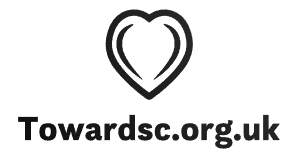As avid enthusiasts of both sports and the occasional flutter, we often find ourselves fascinated by the world of betting odds. However, despite our shared passion, we recognize that understanding these odds can be bewildering for many. That’s why we’ve decided to tackle this topic head-on, shedding light on the common misconceptions that surround betting odds.
Our Goal: By clarifying these misunderstandings, we can help both novices and seasoned bettors alike make more informed decisions.
Key Topics We Will Cover:
-
Deciphering Odds Types:
- Understanding the difference between fractional and decimal odds.
- Clarifying the true meaning of odds-on favorites.
-
Exploring Common Myths:
- Together, we’ll explore eight prevalent myths and misconceptions, breaking them down one by one to provide a clearer picture.
Outcome: By the end of this journey, we hope to empower ourselves and our fellow enthusiasts with the knowledge needed to navigate the exciting world of betting with confidence and clarity.
Types of Odds Explained
When we explore the types of betting odds, we typically encounter fractional, decimal, and moneyline formats. These formats might seem like different languages, but they all convey the same information—our potential winnings and the probability of an outcome.
Understanding these odds helps us connect with fellow bettors, as it creates a shared language and understanding. Odds are a reflection of the probability bookmakers assign to a specific event happening. By grasping this, we can better assess the risk and reward involved in our bets, fostering a sense of belonging in the betting community.
Bookmakers use odds not only to indicate the likelihood of an event but also to ensure they make a profit. It’s crucial for us to remember that odds can vary between bookmakers due to differing assessments of probability.
By understanding the types of odds, we enhance our ability to make informed betting decisions, strengthening our bond with others who share our interest in the betting world.
Fractional vs. Decimal Odds
Let’s dive into the differences between fractional and decimal odds to better understand how each format impacts our betting strategy. As a community of avid bettors, we know that odds aren’t just numbers—they represent the probability of an event and influence our potential returns.
Fractional Odds:
- Often used by bookmakers in the UK.
- Show the profit relative to the stake.
For example:
- Odds of 5/1 mean we win $5 for every $1 we bet.
Decimal Odds:
- Commonly used across Europe and Australia.
- Reflect the total payout, including the original stake.
For example:
- Decimal odds of 6.0 mean a $1 bet returns $6 in total.
This format provides a clearer picture of potential returns, making it easier to compare different odds.
Understanding these formats helps us make informed decisions and feel more at home in the betting world, uniting us in our quest for smarter wagers.
The Truth About Favorites
Many bettors mistakenly believe that favorites always guarantee a safer bet, but this assumption can lead to unexpected pitfalls. As a community of bettors, we often find ourselves drawn to favorites due to their seemingly higher probability of winning.
However, it’s crucial to understand that odds are not just about probability; they also reflect the bookmakers’ insights and adjustments to balance their books. By overly relying on favorites, we might overlook value in other bets that offer better returns.
Let’s remember that even favorites have a chance of losing. Bookmakers set odds not only to predict outcomes but also to encourage balanced betting. This means they may adjust odds to make a favorite appear more appealing, even when the true probability doesn’t justify it.
As we navigate the betting landscape, let’s stay vigilant and question the odds presented. By doing so, we can avoid the trap of blindly following favorites and instead make informed decisions together.
Key Takeaways:
- Odds reflect both probability and bookmakers’ strategies.
- Favorites are not infallible; they can lose.
- Bookmakers may adjust odds to make favorites seem more appealing.
- It’s important to question the odds and seek value in other bets.
By keeping these points in mind, we can enhance our betting strategies and improve our chances of success.
Debunking Common Myths
Many of us fall into the trap of believing myths that can skew our betting decisions. We often hear that certain odds are guaranteed wins or that bookmakers have secret insights beyond our reach. Let’s set the record straight.
Odds merely reflect the probability of an outcome, not a surefire prediction. They’re a tool, not a prophecy. When we see an outcome with low odds, it doesn’t mean it’s guaranteed to happen; it indicates a higher but not absolute likelihood.
Bookmakers’ Role:
- Bookmakers are skilled at balancing books, not predicting outcomes with certainty.
- They adjust odds based on bets placed to ensure they profit regardless of the outcome.
- It’s a misconception to think they know something we don’t.
Empowering Bettors:
- We’re part of this betting community, and understanding these nuances strengthens our position.
- By debunking these myths, we can make more informed choices and better enjoy the shared experience of betting.
Let’s approach it with clarity and empowerment, together.
Odds and Probability Misconceptions
Understanding Odds vs. Probability
Many of us mistakenly equate high odds with guaranteed success, overlooking the inherent uncertainty in probability. It’s easy to get caught up in the excitement of betting when we see favorable odds, thinking a high payoff is just around the corner. However, odds simply reflect the likelihood of an event occurring, not a promise. Probability tells us that even events with high odds can and do miss the mark.
The Role of Bookmakers
We should remember that bookmakers set odds to balance their books and ensure their profit, not to predict outcomes with certainty. They:
- Analyze data
- Consider public perception
Despite this, they can’t control the actual events. So, when we place a bet, we’re engaging in a game of chance, not a sure thing.
Approaching Betting Realistically
Let’s not fall into the trap of believing that high odds equate to a certain win. Understanding the difference between odds and probability helps us approach betting with a clearer, more realistic mindset.
The Role of Bookmakers
Bookmakers’ Role in the Betting Industry
Bookmakers play a pivotal role in the betting industry by setting odds that aim to balance potential payouts with their own profit margins. Their expertise allows them to:
- Assess the probability of various outcomes.
- Determine odds that reflect these probabilities.
As a community of bettors, we rely on bookmakers to offer odds that are both fair and competitive, providing us a sense of belonging in the betting world.
Understanding Odds
Odds are more than mere numbers; they’re a calculated expression of probability. When engaging with bookmakers, bettors partake in a shared understanding of potential future events.
Odds Setting Process
Bookmakers use sophisticated algorithms and vast amounts of data to ensure the odds they set are as accurate as possible. This meticulous process helps to:
- Manage risk.
- Ensure bettors are offered enticing opportunities.
- Maintain bookmakers’ profit margins.
Together, we form a dynamic ecosystem where probability, odds, and strategy come together seamlessly.
Understanding Odds Fluctuations
In the fast-paced world of betting, we often see odds fluctuate due to changes in market demand and the latest information affecting potential outcomes. As a community of bettors, understanding these fluctuations helps us make sense of the dynamic nature of betting.
Odds aren’t just random numbers; they’re a reflection of probability, constantly adjusted by bookmakers to:
- Balance their books
- Reflect real-world events
When key players get injured or weather conditions change, bookmakers adjust the odds to accurately represent the new likelihood of an event happening.
Odds fluctuations can feel like a rollercoaster, but they offer us valuable insights. When we see odds shift, it’s a signal that something significant has occurred, impacting the probability of an outcome.
Bookmakers aim to provide odds that attract balanced betting action, ensuring they make a profit regardless of the outcome.
By understanding these fluctuations, we can better interpret the market and feel more connected to the betting community.
Strategies for Smarter Betting
To enhance our betting success, we must adopt smart strategies that leverage our understanding of odds fluctuations and market insights.
1. Analyze Odds and Understand Probability:
- Recognize the importance of analyzing odds to identify value bets—instances where bookmakers may have underestimated a particular outcome.
- This requires:
- Diligent research
- A keen eye for market movements
2. Compare Odds Across Multiple Bookmakers:
- Actively compare odds to find the best possible returns for our bets.
- Stay updated with real-time information to adjust bets accordingly, as odds can shift rapidly based on new data or public sentiment.
3. Employ Bankroll Management:
- Set aside a specific amount for betting and stick to it.
- This discipline:
- Mitigates risk
- Ensures we don’t chase losses
4. Foster a Community:
- Share insights and strategies with others.
- By collaborating, we can collectively improve our betting acumen and enjoy the journey together.
By implementing these strategies, we can enhance our betting success and make informed decisions.
What impact does public perception have on betting odds?
Public Perception and Betting Odds
Public perception significantly influences betting odds. As more people back a particular outcome, bookmakers adjust the odds to manage their risk.
Influence of Collective Beliefs
Our collective beliefs and biases can sway the odds, creating opportunities for value betting. It’s essential to consider how public sentiment may impact the betting market.
Making Informed Decisions
To make informed decisions, consider the following:
- Analyze the data and trends rather than relying solely on popular opinion.
- Identify instances where public sentiment may have skewed the odds.
- Evaluate the potential for value betting based on comprehensive analysis.
By focusing on analysis rather than blindly following the crowd, bettors can make more strategic and potentially profitable decisions.
How can external factors, such as weather conditions or player injuries, affect betting odds?
External Factors Influencing Betting Odds
External factors, such as weather and injuries, can significantly sway betting odds.
Impact of Injuries:
- If a star player is injured, odds may shift to reflect the impact on the team’s performance.
Role of Weather Conditions:
- Weather conditions can play a crucial role by affecting gameplay and outcomes.
Benefits of Awareness:
Being aware of these external factors allows us to:
- Make informed decisions when placing bets.
- Increase our chances of success.
- Maximize our potential winnings.
What are some common mistakes beginners make when interpreting betting odds?
Understanding Betting Odds
When beginners interpret betting odds, they often make mistakes due to a lack of understanding of the different formats. These formats include:
- Decimal
- Fractional
- Moneyline
Common Misinterpretations
-
Assuming Odds Reflect Probability
A frequent error is assuming that odds directly reflect the probability of an outcome. This misconception can lead to misinformed betting decisions. -
Overlooking Key Factors
Newbies sometimes neglect important aspects such as:- Recent team performance
- Head-to-head matchups
Guidelines for Better Betting Choices
-
Avoid Following the Crowd
Don’t blindly follow popular opinion without personal analysis. -
Keep Emotions in Check
Ensure that emotions do not influence your betting decisions.
Developing Understanding
By developing a solid understanding of these elements, bettors can make more informed and strategic betting choices.
Conclusion
In conclusion, understanding betting odds is crucial for making informed decisions. By debunking misconceptions and learning the ins and outs of odds, you can improve your betting strategy.
Remember, bookmakers play a key role in setting odds, so staying informed and adapting to fluctuations is essential.
With the right knowledge and a smart approach, you can increase your chances of success in the world of betting.
Happy betting!

